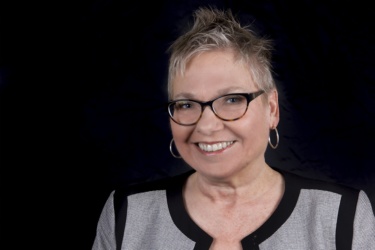
There’s no denying this: Gen Z (16-22-year-olds as defined by the Natural Marketing Institute – some use a slightly younger age range) are setting their own tone and accepting no B.S. – whether it’s the activist survivors of the Parkland, FL school shooting or vocal vegans like the influencer Gianna Bruzzese — a former co-op store clerk and intern at WholeFoods Magazine who created the Instagram @veganbygianna. They’re entrepreneurial, globally oriented, and consider creative self-expression a key part of life.
The most ethnically diverse generation, Gen Z is more likely to be of mixed race and comfortable trying out different styles and even gender identity. They communicate largely through text and social media. While closer to their parents than previous generations, their perspective is more universal because of social media. They also like fresh food and to buy from brick-and-mortar and farmers’ markets.
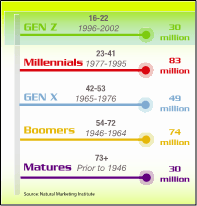 Even if they don’t act on their knowledge of what’s good for them, they have greater awareness than any other generation because they grew up with it.
Even if they don’t act on their knowledge of what’s good for them, they have greater awareness than any other generation because they grew up with it.Dashae Roberts, a 21-year-old fashion design student minoring in fashion communications at Parsons Institute, is much more at home as a vegetarian leaning to vegan during the school year in New York City than when with her family in North Carolina.
“I took a year off last year and lived with my family,” she says. “They think it’s the craziest thing ever. ‘You eat like a rabbit!,’ they say.”
Like many of her peers, Roberts was influenced by a documentary she saw on Netflix. She stopped eating meat after watching “What the Health,” a film some nutritionists criticized as unfairly demonizing the health hazards of animal-derived proteins such as eggs.
Roberts researched vegetarianism using “What I Eat in a Day” videos on YouTube, checked out stores and watched more documentaries. She became committed. “Before that I was eating whatever,” she says. “Now I eat more plant-based — salads, fruits and vegetables. I recently tried to eat no dairy and it’s a little harder.”
The transition into becoming a vegan is partly for political reasons and partly for the health benefits, she says.
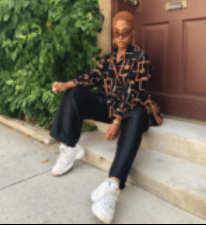
In New York City, she generally shops at Trader Joe’s because it’s the closest and cheapest option. For a special occasion she’ll go out to Whole Foods Market. In North Carolina, “where everything is fried, even the health food isn’t healthy,” she just found a haven at the new Earth Fare in her family’s neighborhood. She goes there for the hot foods – sushi, vegan chicken, vegan pizza. She also likes to eat superfoods such as flax seeds, but takes no vitamins.
Price is her most important consideration in a store, followed by overall visual appeal. “I guess it’s the artist in me,” she says. “When you walk in, you see all the fruit lined up nicely. The watermelon is outside. I prefer stores geared toward food and health rather than Walmart because those types of stores really care about the produce. I feel like everyone there is kind of healthier.”
As for causes, Dashae’s is Black Lives Matter. She’s created www.feelingmypretty.com, a website for women of color offering an empowering platform, supporting young girls and making sure they have representation in all forms of art and media. Its tagline: “Because We Define Our Own Beauty …..”
Roberts likes to paint while listening to audiobooks and in the car listens religiously to five podcasts about her industry: “The Business of Fashion,” “The Cutting Room Floor,” and “College Fashionista” among them.
Then there’s Adam Simon, a 20-year-old entering his senior year at Skidmore College in Saratoga Springs, N.Y. He’s majoring in philosophy and minoring in media and film studies. He loves to cook and sees himself “somewhere in the middle of healthy and unhealthy.” When he’s not on campus, he’s in a Maryland suburb. When at home, he likes to bake his own bread.
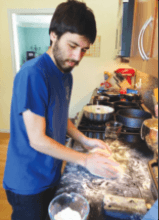
“When I shop in the grocery store, I generally don’t buy organic given a lot of my foods my parents pay for in terms of a weekly grocery [budget]. I’m definitely conscious of what I’m spending. In summertime there are farmers’ markets every week, so I’ve been getting a lot more produce from the farmers’ market, definitely organic and clean. I try to do that as much as possible.
“I eat a lot of bread. Sliced loaves definitely last longer. I’m living with two other young men so the time is a factor. I know a sliced loaf will last two weeks… a week and a half whereas another type of loaf would go much quicker. One thing I’ve gotten into the habit of doing is going to the bagel place near where I live that sells day-old bagels. A week’s worth is $3.”
Simon enjoys working at the campus radio station and hopes to continue some kind of radio career when he graduates. He says he’s conscious of the things he eats but is also a pragmatist. He doesn’t get worked up about “the whole GMO thing.” He doesn’t eat a lot of meat and when he does it’s mostly chicken, rarely red meat. Any “meat guilt” he ever feels comes from its toll on the environment.
With a father who works in the world of ocean conservation, Simon grew up exposed to that expertise and is very knowledgeable about fish sources and the seafood he eats. He’ll never buy grocery store shrimp, for instance, because of the quality of the fish stock. “It takes a little bit more of an effort, but those are the things I think about.”
Simon says his hydration beverage of choice is water and he drinks coffee once a day each morning, describing it as an addiction he picked up from his parents in the senior year of high school.
“I really like the ritual of making a cup of coffee and sitting down and drinking it. In the winter, I drink a lot of tea during the day as a pick-me-up. I got in the habit of bringing hot water with me to school, and a tea bag. I’ll steep it, and have a hot thing ready. It’s a nice thing to get through the class. [Winters are cold in Saratoga Springs.] When I first drank tea, I drank a lot of green tea but now I’m usually jonesing for black.”
A teacher turned Simon on to a steepable fungus called Chaga Tea and “It’s the bomb!” He buys it online from BirchBoys. “I love the stuff. It makes me feel relaxed. During the school year, I’d steep a pot before bed and put myself to sleep. The reason I adopted that niche product is someone told me how they use it. It’s really mellowing, has no caffeine, tastes pretty good. Just those three descriptors.”
Listening to him, it’s hard to believe his major is philosophy and not marketing but that’s exactly how he described it.
Simon perceives natural products stores as expensive, and believes some of their products are a “sham,” so he never frequents one. He likes farmers’ markets because they are “awesome in general” and he can see the products and know where they came from.
“I’m not really a big fitness dude,” he says. “I’ve been blessed with a metabolism that lets me eat without thinking.”
As for social media, Simon discontinued his Instagram account because of the time it consumed. “It just felt kind of pointless.” He rejoined Facebook when he came to college because otherwise he’d miss out on too much. “A lot of social planning happens on Facebook these days – parties, meetings, get-togethers, concerts. I’m in the camp of, ‘It’s wasted time until it isn’t.’ ”
For the past two summers Simon’s been trying to organize, facilitate and lead a program to engage youth in radio. He’s had to make calendars, schedules, send weekly emails, post photos on Facebook. That’s his entrepreneurial venture and it also has a bigger purpose.
“I’m a white straight man. I have experienced a lot of the privileges that come with that,” he says. “I struggle with how best to be who I am yet be supportive of the people in society who I see as being marginalized. For instance, with this radio thing, I’m purposefully taking it to other localities to try to get other populations involved in it. That sort of thing is always present in my mind.
“I’m from a largely white area in Maryland and now a largely white city in upstate New York. I try to see myself as being very aware of my surroundings and how that might affect how I think,” he added. Simon’s “flirted” with the idea of being vegetarian, but never really went for it. Still, he’s not living in a cocoon. He’s had direct exposure to other cultures.
“I went abroad to India last year and was in a part of the country where it’s almost entirely vegetarian,” he says. “I really got the whole vegetarian thing. I was vegetarian for four or five months. I love the belief that you can’t possibly live in a world where you don’t harm other things. But that’s just the human condition we’re born into. We have to wear clothes and consume things that consume other things.”
Sarah Scalia, 21, epitomizes the entrepreneurial gene of Gen Z. A business student who also loves fashion and sports, she recently launched an athleisure brand Sassy Sports at “The House of Sass” www.thehouseofsass.com with the motto: “Look good, feel good, and stay sassy.” Right now she’s selling small quantities as she gets the business up and running. Her business Instagram is @itsthehouseofsass. Her brand is also accessible through Pinterest and Facebook.
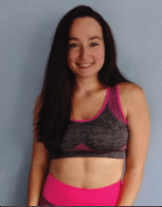
Scalia is an advertising and integrated communications major and fashion marketing minor at Pace University, living in lower Manhattan during the school year and with her family across the river in Bayonne, N.J., the rest of the time. In addition to Sass, she works in the marketing department of an insurance company and is a gymnastics coach.
“I’m so lucky I get to do something I love,” she said. The empowered voice of the brand speaks to feeling comfortable in your own skin.
“All of our Sassy Sports apparel feel like an extension of you, designed to work with your body, not on your body. The House of Sass was built with the desire to inspire all gals to live boldly, responsibly, yet free-spirited,” the website reads.
Scalia launched The House of Sass with an appreciation of what it takes to feel good as an athlete. A gymnast for more than 10 years and a current U.S. Gymnastics Association coach, she knows that standing out and feeling sassy are essential to a bold performance.
“Sassy Sport represents far more than a single line, but a lifestyle and it is Sarah’s belief that staying healthy, lighthearted, energetic, and unstoppable are qualities that all Sassy Babes should feel,” her website reads. “Be comfortable and confident in your own skin, and sport. Let Sassy Sport make you feel like the best YOU ever, keeping in mind that you wear what you are!!!”
Entering her senior year, Scalia may be a bit of an overachiever. But her venture, like those of Dashae Roberts and Adam Simon, speaks to how Gen Z is not waiting for anyone to show them what to do. They are making it happen.
“We took all these different things that don’t normally collide and figured out a way to make it work,” says Scalia, of her love for business, fashion and sports.
Scalia became a vegetarian in 8th grade because it’s when she started to learn about animal cruelty in the food industry and the treatment of animals. It lasted until freshman year of college.
“I dormed in freshman year,” she recalls. “Either you had meat or you had nasty fake-looking vegetables. The school food is disgusting. I’ve signed multiple petitions on the food quality and where they’re sourcing food from. They said they source it from a farm in upstate New York, but it doesn’t satisfy me.”
At her mom’s suggestion she tried chicken, and found a natural, cage-free chicken brand she bought and cooked herself.
As an athlete she’d always eaten a lot of protein. When she got to college and started eating less well she figured out it was what she was eating that made her feel low-energy. Now she eats “clean” and makes her own shakes with fruits and vegetables.
“I don’t use any whey powder or protein powder. I take a fish oil supplement and B12 and vitamin C. I try to avoid medicines. For makeup I use cruelty-free products – e.l.f. — because they don’t animal test and that’s something I’m pretty passionate about. Natural toothpaste, natural skincare. As for beverages, I always advocate for water.”
Scalia reads print magazines for the most part and has subscriptions to Cooking Light, Vogue and Cosmo. For her social media work at the insurance company, she’s all business and reads articles online from the Wall Street Journal to Bloomberg to LinkedIn.
Note to retailers: When trying to reach Gen Z, she says, social media or an internet presence is key, particularly because the smartphone is like an extension of the body. “It’s essential. Nowadays you have a phone in your hand and it will tell you everything you need. If you have consistent social media or a website, people will be more inclined to go there.”
While Scalia buys her school textbooks from Amazon and got a phone case there, she likes to shop in person. “I like to see and feel the quality of what I’m buying. I shop at Whole Foods and Trader Joe’s, also Stop ‘n Shop. I like to eat cleaner snacks. When I’m in Trader Joe’s or Whole Foods, I’m not surrounded by food I can’t eat.”
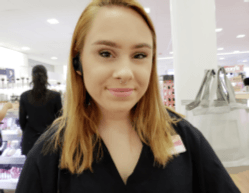
Young mom Marina Wardell, a 21-year-old makeup artist who works the floor at ULTA Beauty, says her eating habits changed radically once she left her hometown of Hoboken, NJ. She grew up with easy access to takeout food and a mom who didn’t cook much. “My dinners were pasta, Lean Cuisine, and cereal. We did eat out a lot.” It wasn’t until she moved to the suburbs that she learned how to cook. Her partner taught her everything he knows.
An engineering student, he’s still the primary cook of the household, a role he played for his two siblings growing up.
Wardell had slowly gained back much of the weight she’d lost after giving birth to her son and turned things around by starting to eat protein-rich breakfasts — and cutting out nighttime snacking.
“I started buying more groceries, eggs for breakfast, avocados, and after bringing my son to school, I’d have time to make a whole breakfast. That is something I never really did before. It boosted my metabolism,” she explained. “It’s something I’ve known my entire life, but I’ve ignored. Breakfast is the most important meal of the day. I was not hungry in the morning when I woke up. Once I got used to eating breakfast and stopped eating late, I realized I am hungry. I had to change myself to get into that pattern. Then I enjoyed it,” she said.
The family makes a point of eating dinners and taking walks together whenever possible. She’s trying to wake up early with her partner for morning runs.
Since last October, she’s lost 37 pounds and in December started the job at ULTA where she spends a lot of time on her feet and is constantly moving as she helps customers.
While they are aware of it and would like to eat organic food, it’s a financial issue, Wardell said. Living on the tightest of budgets, there is no room for luxuries, and she sees organic food in that category.
“I would love to look for organic food, but it’s too expensive. We have fun shopping at Trader Joe’s sometimes because it’s cheaper there. But Shop Rite is right near us. It’s more convenient. Shop Rite has an organic section but it’s very expensive,” she said.
Wardell sees a lot of Gen Z customers at her job and like any good retail worker, she literally asks every person in the store if they need help. “If I see someone who might have skin issues, I’ve been there. I’ve had skin issues. I know the products that worked for me.
“I have a lot of friends who are vegetarians and vegans. They go to Whole Foods,” she said.
But getting real, a lot of the people she works with who are her age are not like that. “They order pizza and Chinese food every day. I feel like I’m a happy medium. I’m not ordering out every night. I’m eating balanced meals, which makes me happy.”
Wardell is building a private clientele and uses the Instagram @marinawardell.mua to engage and showcase her work with prom makeup, special effects and styling. When her busy schedule permits, she likes to watch The Daily Show and also gets news on Snapchat. (Instagram is her go-to favorite and she ignores her Facebook account, except on her birthday.) She notices products advertised on Instagram and described in detail the video of one she saw for Daily Harvest, a product she expects she’ll try because the company does a lot of price promotions.
Wardell chooses cruelty-free beauty products “because it’s just not necessary. There are so many brands now doing it and their makeup is perfectly fine. I just don’t understand why it’s not the standard for all companies. I use Tarte, Julep and Urban Decay.”
She sees each client’s face as a canvas. “I still get to express myself and show my talents. It’s really nice when they’re happy with how I did it. It’s very rewarding.”
With the proliferation of selfies, and wanting to look good for social media, makeup has become a leading category.
When we spoke she had been selected by her manager for a Dress for Success event. “We get to show women how to apply makeup. Women who are looking for a job. Some of the people may be homeless. I’m really excited about it.”
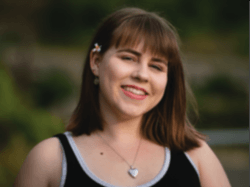
The youngest of our Gen Z interviews was with Kirsten Nilsen, an 18-year-old starting college at American University in Washington, D.C. She is majoring in international relations. While she uses Snapchat and Instagram, she will also be back on Facebook more because of how much it’s used by the college and for event scheduling.
Nilsen loves theater and live concerts. Her favorite musicians are Ed Sheeran and Taylor Swift, and she’s still close with her mom, who often joins her at events. She’s trying to eat healthier, she tells me. Her mom got a juicer and she’s trying “more fruit and stuff.” She drank some protein shakes for awhile, but only because her mom had them. After her mom visited a nutritionist to get her blood sugar under control, Nilsen learned the basics – drink water, try to stay away from sugar and bread/carbs. Eat smaller meals every three hours rather than wait longer and have larger portions.
As the dangers to eye health from too much screen time become part of the public consciousness, it’s noteworthy that Nilsen spoke of her fondness for reading hardcover books because of their physical form. She used no scientific terms but described the condition perfectly. “It’s easier because sometimes my eyes hurt from looking at the screen.” WF
Photo of Kirsten Nilsen by Jennifer Nilsen Photography
> Meet Gianna, Gen Z and Vegan Influencer
Sponsored by:





